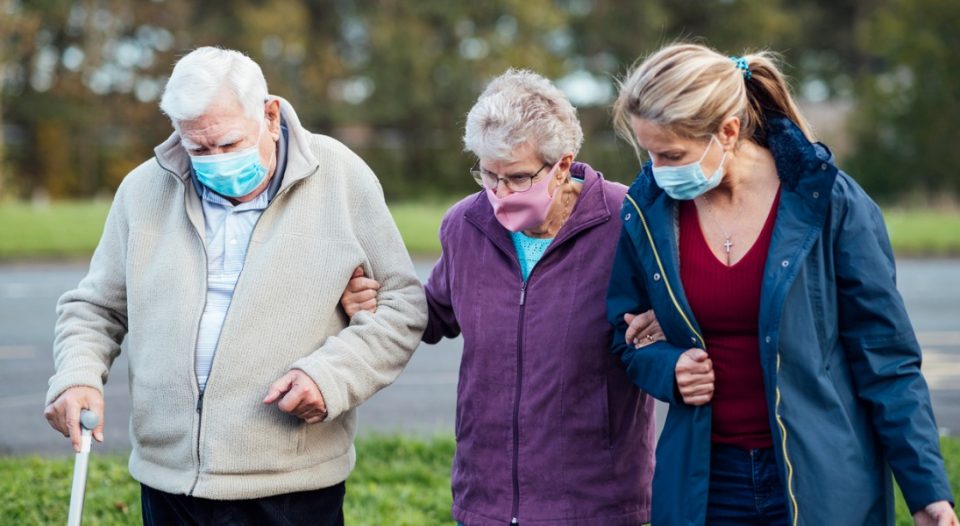I vividly remember a day shortly into my first pastoral call when I went home and told my husband I hadn’t had a chance to go to the bathroom for hours. I’d spent the day running from one thing to the next. Without missing a beat, he replied, “Lesson One in self-care: Go to the bathroom when you need to go.”
Whether you do your caregiving as a parent of young children, an adult child caring for aging parents or a member of a caregiving profession, it can be tempting to fall into the belief that your role is to put others first, even at the expense of your own needs. At times, I’ve taken comments such as Maya Angelou’s admonition to “never ask of another what we can do ourselves” to mean that I should be able to do it all. Or that if I can’t do it all, there is something wrong with me.
Sometimes, in an effort to cope with my caregiving duties, I tell myself that someday our kids and our aging parents won’t need us so much or that I won’t have so much to do. Often, I put so much effort into saying “yes” to others that I end up saying “no” to myself. Eventually, this catches up with me.
The reality is that there will always be more to do. I will never truly be caught up at work or with errands or with the projects I’d like to tackle. So if I don’t take the time to stop, to be still and to remember who and whose I am, eventually my primary relationships, my health and even the quality of my work begins to suffer. Taking this time brings me back to my unshakable center–that my first and foremost calling is to be a child of God and that my worth is defined not by what or how much I do but by what God says I am: beloved, forgiven, set free.
Self-care really isn’t a bonus, nor is it something we can do only when we have time for it. Rather, it’s necessary in order to be the healthy, wholehearted and present person God has created us to be.
I’ve learned that there is a direct correlation between how well we care for ourselves and the extent to which we’ll be able to experience the fullness of life Jesus desires for each of us. In order to do the caring I’m called to do daily, I need time to nurture my spirit and fill my cup. I need unstructured and uninterrupted time to be with those I care about most and with God, who loves us most of all.
During this pandemic, most of our usual means and methods of self-care have had to be renegotiated. Working from home and distance learning have created new challenges and routines. New worries exist when it comes to caring for elderly loved ones.
If you’re someone who always puts others first, or who gives up time for yourself because you feel guilty taking it, what I hope you’ll hear in these words is an invitation to cut yourself some slack and to give yourself permission to take the time and space you need to practice some self-care. Self-care really isn’t a bonus, nor is it something we can do only when we have time for it. Rather, it’s necessary in order to be the healthy, wholehearted and present person God has created us to be.
Here are a few faith practices to try. First, find some time in the margins of your day to journal about or make a list of what helps you feel rejuvenated. What do you wish you had more time for in your life, or as a family? What is one thing you can do to give yourself more of that? Next, try finding two minutes to be silent. Sit still and simply focus on your breath going in and out. Finally, try putting a sticky note on your mirror with the reminders “I do enough. I have enough. I am enough. In Jesus’ name.”
Self-care isn’t always easy to fit in, but when we’re intentional about practicing it, we might remember more easily that we aren’t in this alone and that, although there are certainly ups and downs that come from caring for others, being able to do so is a blessing and a privilege.
Repeat after me: I do enough. I am enough. I have enough. In Jesus’ name, amen.



